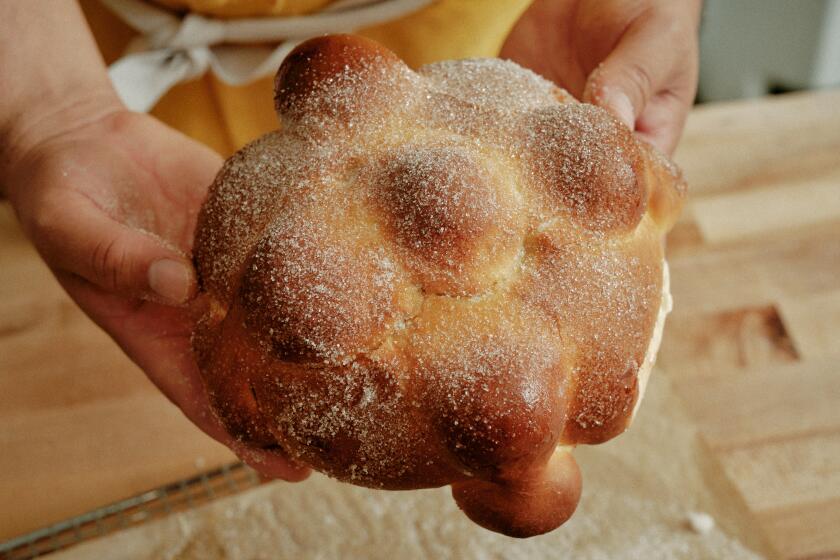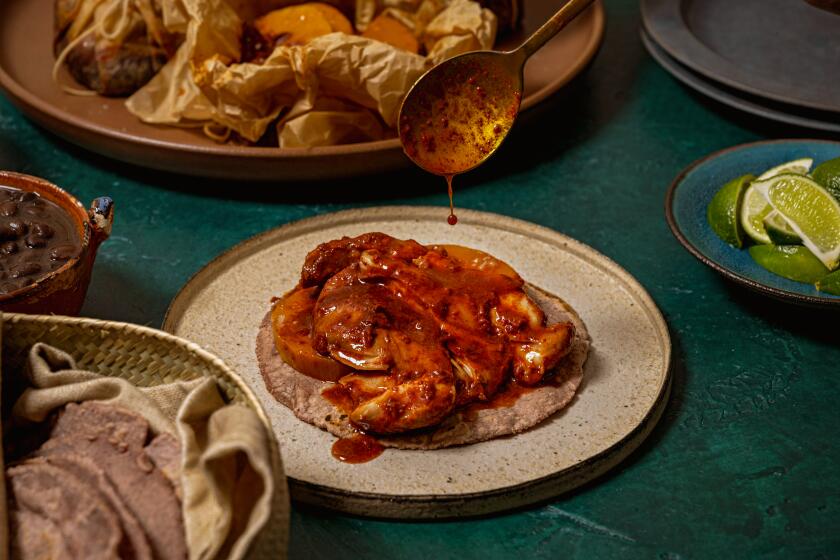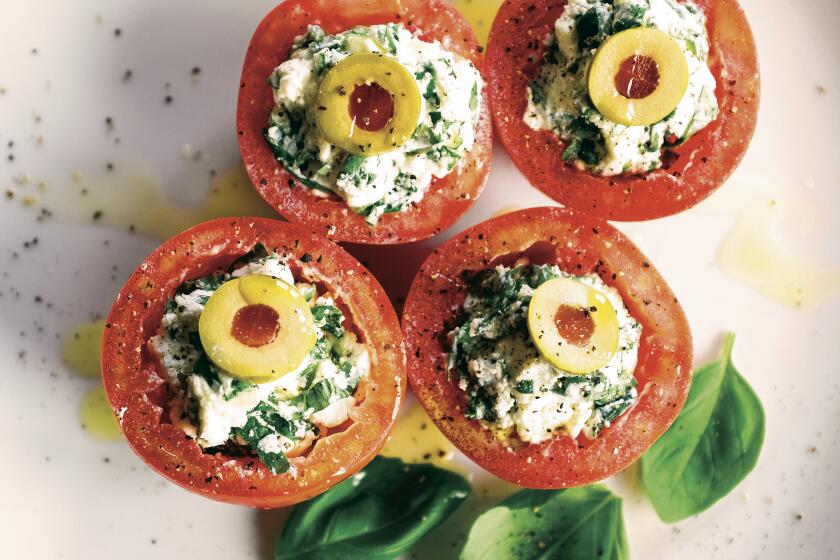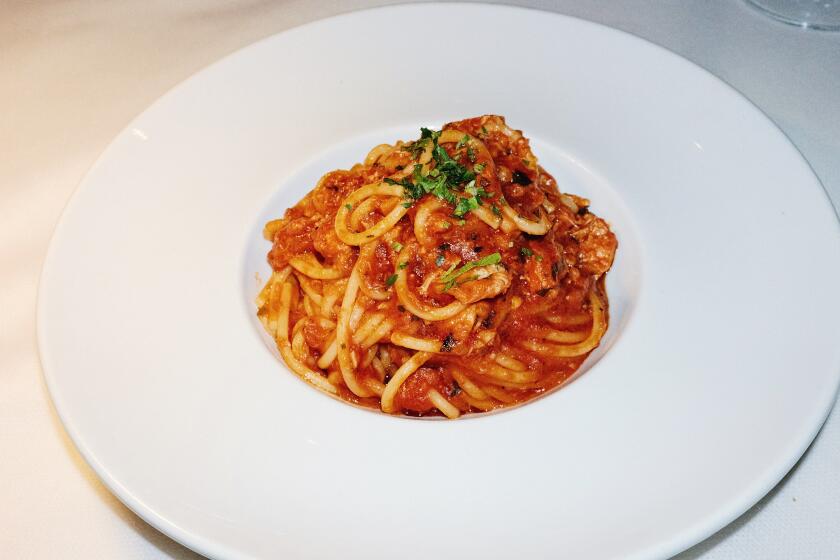Lasagne ai funghi
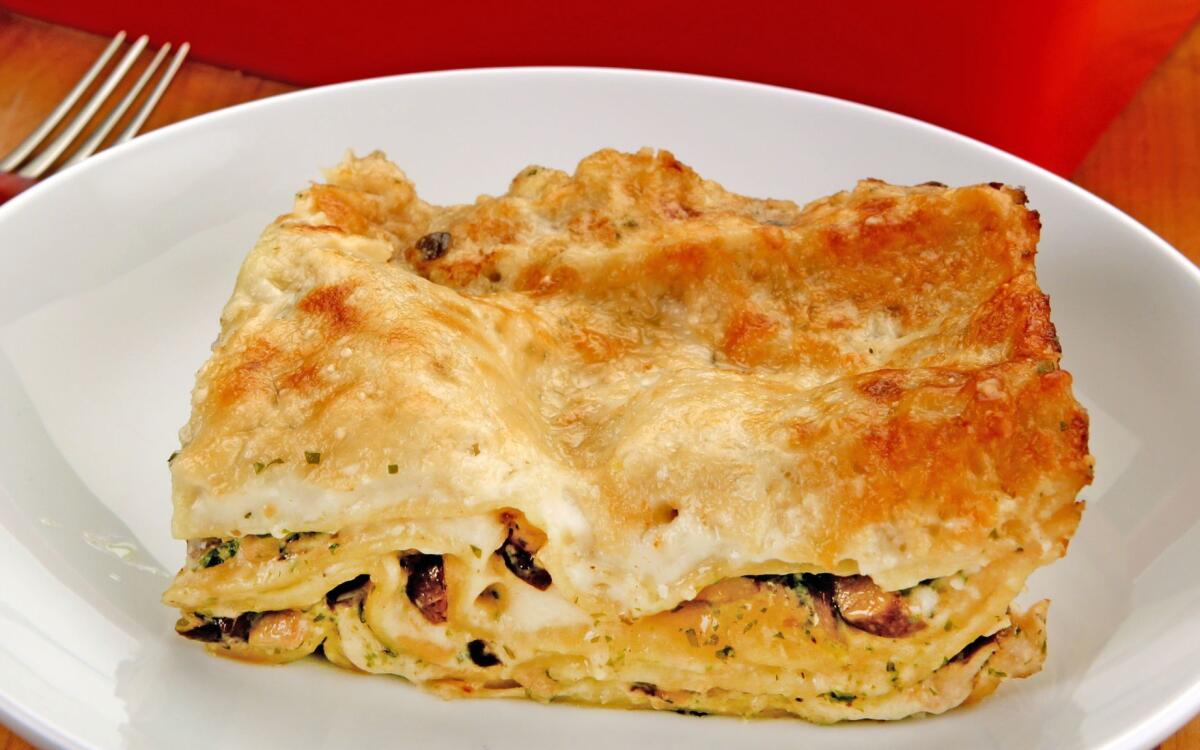
Lasagne (as opposed to lasagna) has its origins in Naples and is ubiquitous north of Rome. (Lasagne is plural and refers to the noodles themselves, also plural. Lasagna is Italian American parlance and refers to the cheese bomb of a dish that lasagna can be, i.e., the dish in toto.)
Lasagne-with-an-e is a multi-layered luxurious delivery system for flavor, made with thin egg noodles and bolstered by silken pools of the thickened buttery sauce known as besciamella in Italian, and béchamel in French. We call it white sauce. Made with convenient, no-boil noodles, this is a dish that you can assemble in minutes rather than hours — especially if you rely on seasonal ingredients as the “condimento,” or flavoring. It’s also an elegant and simple way to use up any bits and pieces you have in the fridge.
From the story: Lasagne, not lasagna: Why a pan of béchamel lasagne is just the kind of comfort food you may need
Béchamel
In a heavy-bottom saucepan, melt the butter over low heat. Add the flour and stir to form a smooth roux. Cook the roux over low heat until it turns a blonde color, 5 to 7 minutes. Stir and scrape the sides continually to keep the roux from burning.
Slowly add the milk, whisking it in with the roux. Increase the heat to a medium high and continue cooking at a gentle simmer, whisking frequently and scraping the sides and bottom of the pan.
Continue cooking until the sauce thickens and it loses the taste of raw flour, about 20 minutes. Season with the salt, pepper if you wish, and the nutmeg. This makes about 1 quart béchamel sauce. Set aside until cool and thick enough to dollop; the sauce can be made ahead and stored, covered and refrigerated, up to 1 day.
Mushrooms
Remove any woody stems from the mushrooms and roughly chop them.
Heat a large skillet over medium-high heat and add the oil. Stir in the mushrooms and sauté until they soften and begin to color. Add the garlic and rosemary, stirring to combine well, then add the parsley, along with 1/2 teaspoon salt and 1/4 teaspoon pepper, or to taste. Remove from heat. Set the mushrooms aside until ready to assemble the lasagne.
Lasagne
Heat the oven to 375 degrees. The lasagne will contain 4 layers of pasta. 3 have broth, béchamel, mushrooms and Parmesan, and the 4th is the top layer, containing only broth, béchamel and Parmesan. As you use the noodles, pass them briefly under cold water to moisten, before placing them in the pan.
Lightly oil a 13-inch by 9-inch baking dish with a paper towel dipped in olive oil.
Pour 1 cup of broth onto the bottom of the baking dish. Place a layer of moistened noodles on the bottom of the dish. Drizzle 2 to 4 tablespoons of broth over the noodles, enough to create a film, then cover with a thin, even layer of béchamel sauce. Using a soup spoon, dollop spoonfuls of béchamel over the first layer. Scatter a third of the sautéed mushrooms over the béchamel. Finish with grated Parmesan.
Make another layer of moistened noodles. Again, drizzle over 2 to 4 tablespoons of broth over the noodles, followed by a thin layer of béchamel and the dollops. Scatter half of the remaining mushrooms over the béchamel, followed by the grated Parmesan. Repeat to make 1 more layer.
Finish the lasagne with another layer of pasta filmed with broth and generously topped with a smooth layer of béchamel. Sprinkle over grated Parmesan.
Cover the lasagne with foil. At this point you can refrigerate the lasagne up to one day. To cook, place in the oven for 20 minutes. Remove the foil and continue to cook until the top is speckled with golden dots and the lasagne is heated all the way through, an additional 20 to 40 minutes.
Get our Cooking newsletter.
Your roundup of inspiring recipes and kitchen tricks.
You may occasionally receive promotional content from the Los Angeles Times.









